Jamie Kirkpatrick: a life for Nature
Dan: Can you tell me where you first discovered your love for Nature?
Jamie: I developed it with my parents who used to go on holidays to really beautiful natural places, which would immediately get developed, and then they moved somewhere else. So I developed a love of nature and an abhorrence of development at the same time (laughs)
My parents had their honeymoon at Mount Buffalo and they used to take us up to Mount Buffalo quite frequently, in Victoria. And we'd walk along the mountain tracks.
We didn't yodel very much because that wasn't very Australian, to yodel in those days. But we walked along the mountain tracks and seemed to enjoy ourselves. Sometimes I wondered - you know - I took another 50 thousandth step and I thought, when are we going to get back home? I don't know what the enjoyment is (laughs)
Then we went a lot to Merimbula, which is on the south coast of New South Wales. And we used to drive through East Gippsland when the Princes Highway was just a really narrow two lane thing, probably still is mind you, but I haven't been there for a while. And there would be fires trickling through the bush on either side of the road.
And then we came to some valley where people were mad clearing, clearing everything and and my mother says "isn't that awful?" and my father would say "you can't stop progress," and I thought to myself, I'll try.
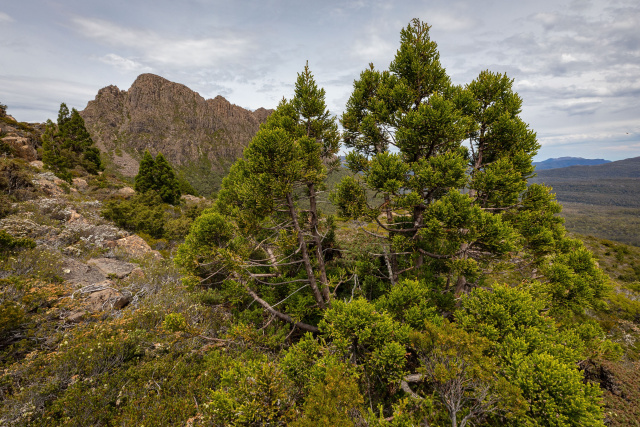
What got you interested in teaching about Earth studies, geography and ecology?
Well, I just got interested. I was always fascinated by maps, even when I was in primary school. And so I did geography, and I was fascinated by plants and animals. My mother was a really keen gardener and so was my grandfather, who lived up in Macedon, which was another place that gave me a love of Nature, with lots of koalas in trees and so forth.
And so I wanted to go to university to enjoy what I did. So I picked a Geography Honours course at the University of Melbourne where I could do plant geography, which seemed to be the ultimate combination of the two things.
I had a teaching studentship at that stage. My father was really concerned about the Depression because he grew up through it and you got the impression that everything was insecure, so I thought well, teachers - they looked as though they were around all of the time during the Depression so that's pretty safe. I'd just do that.
But I blew it all by deciding to go and do a Masters Degree in Plant Geography in the first year of my Dip Ed, after I'd done an Honours Degree. I'd figured out that the academics seemed to do hardly any work, and the work they did, they seemed to enjoy a lot. That's changed a lot now of course - they're now flogged to death! (laughs)
We're in all sorts of strife on the planet and we're going to have to take some pretty drastic action to save life on Earth. What do you think the key is to saving life on Earth?
I think the key is that people realise that they can have a better life by doing it, in western societies and that the better life that's being promised in non-western societies is actually a worse life, although it is improvable.
I mean, for instance, 17% of greenhouse gas has come from people eating animals. Apart from the fact that animals are our relatives and they don't like being eaten, it's not good for you to eat animals. You die earlier or have long years of ill health as a result of it, if you eat a lot of animals. So you can improve your life and do it.
Tourism... what a shitty thing tourism is. I mean you go somewhere else and stare at stuff and get a selfie. I mean, can't you just put it up on the screen and take a selfie? And then send it all round and just propagate it?
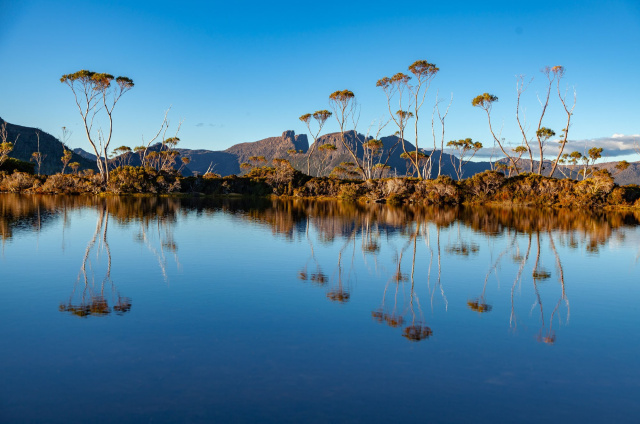
But then again you've got the problem that every time you use the screen, go on a Chat GPT or use the cloud, you're using humongous amounts of energy and people are going psycho from using social media and being locked into computers all the time and having to do things through computers.
I mean, they're not user-friendly devices in any way whatsoever, and they consume a lot of energy. So why can't you sit around, sit on a nice beach with your family and friends, talking about stuff? Singing, dancing, for most of your time, and do something that's real work, instead of made-up work that most of us do?
Most people think their jobs are just made up. They think they're meaningless. That's basically, because they are (laughs)
It's an elaborate game that everyone plays to redistribute wealth and what's construed as wealth. But if what's sold in Harvey Norman is wealth, give me poverty any day.
How do you reckon we can meld the ideas required to save life on Earth using the technology that we currently have?
Oh, just re-label stuff, really. That's what everyone does (laughs) I mean, there are big advantages in some aspects of new technology that could be utilised in the new society. You know, I think that being able to communicate right over the planet is a great thing. I have weekly meetings with people in Europe, South Africa, all around the world using Zoom or other things like that and that's fantastic. That saves going overseas for meetings in jet planes and all sorts of stuff.
You alluded before to tourism being a big problem with carbon miles and the indulgence of insta-tourism, and helicopters to go out and drop a line in a lake. How do you think we can make tourism more ethically acceptable and still give people new and interesting, empowering experiences?
It has to be visiting, slow visiting (laughs) There might be a ritual, a social ritual depending on different societies. They could have different social rituals. We have the ritual of the gap year, where people could take slow trains or slow boats and go around the world and visit other places and have networks of people around the world and actually be in a society and be part of it, rather than being spectators.
If you want to be a spectator, you can always just look at a documentary.
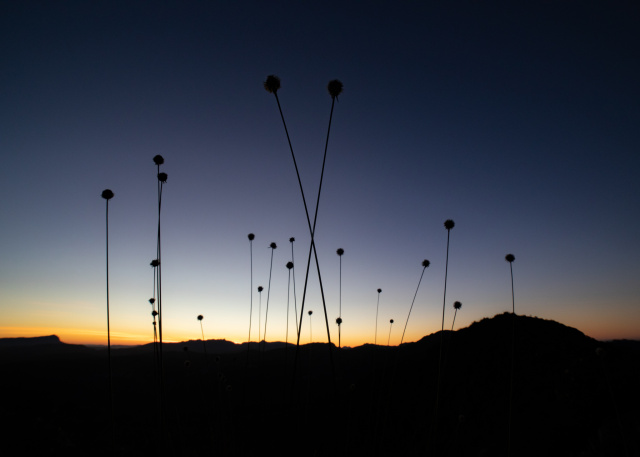
Last question - you're an educator, you've been teaching people for a long time. What do you get out of teaching people?
Oh I like people a lot, I mean we're a funny little animal, it's nice to be with other members of your race.
The people who are attracted to the things that I teach are just wonderful, they're really, really kind and gentle and caring people, about the environment.
I think it's actually true of the people from other courses too. Most people who do things that one might be a little bit worried about when you speak to them, they're just doing those out of fear and also in some cases they're absolutely necessary. I'd hate to have a world without engineers for instance (laughs) And medical practitioners can be useful. Very useful.
--
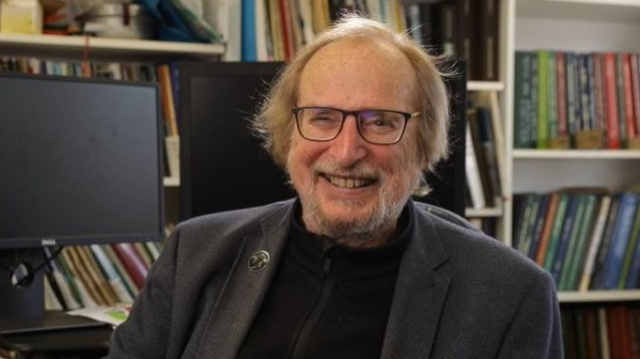
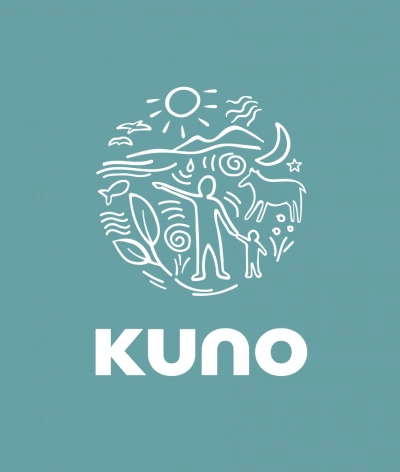
Kuno
Dan: Can you tell me where you first discovered your love for Nature?
Jamie: I developed it with my parents who used to go on holidays to really beautiful natural places, which would immediately get developed, and then they moved somewhere else. So I developed a love of nature and an abhorrence of development at the same time (laughs)
My parents had their honeymoon at Mount Buffalo and they used to take us up to Mount Buffalo quite frequently, in Victoria. And we'd walk along the mountain tracks.
We didn't yodel very much because that wasn't very Australian, to yodel in those days. But we walked along the mountain tracks and seemed to enjoy ourselves. Sometimes I wondered - you know - I took another 50 thousandth step and I thought, when are we going to get back home? I don't know what the enjoyment is (laughs)
Then we went a lot to Merimbula, which is on the south coast of New South Wales. And we used to drive through East Gippsland when the Princes Highway was just a really narrow two lane thing, probably still is mind you, but I haven't been there for a while. And there would be fires trickling through the bush on either side of the road.
And then we came to some valley where people were mad clearing, clearing everything and and my mother says "isn't that awful?" and my father would say "you can't stop progress," and I thought to myself, I'll try.

What got you interested in teaching about Earth studies, geography and ecology?
Well, I just got interested. I was always fascinated by maps, even when I was in primary school. And so I did geography, and I was fascinated by plants and animals. My mother was a really keen gardener and so was my grandfather, who lived up in Macedon, which was another place that gave me a love of Nature, with lots of koalas in trees and so forth.
And so I wanted to go to university to enjoy what I did. So I picked a Geography Honours course at the University of Melbourne where I could do plant geography, which seemed to be the ultimate combination of the two things.
I had a teaching studentship at that stage. My father was really concerned about the Depression because he grew up through it and you got the impression that everything was insecure, so I thought well, teachers - they looked as though they were around all of the time during the Depression so that's pretty safe. I'd just do that.
But I blew it all by deciding to go and do a Masters Degree in Plant Geography in the first year of my Dip Ed, after I'd done an Honours Degree. I'd figured out that the academics seemed to do hardly any work, and the work they did, they seemed to enjoy a lot. That's changed a lot now of course - they're now flogged to death! (laughs)
We're in all sorts of strife on the planet and we're going to have to take some pretty drastic action to save life on Earth. What do you think the key is to saving life on Earth?
I think the key is that people realise that they can have a better life by doing it, in western societies and that the better life that's being promised in non-western societies is actually a worse life, although it is improvable.
I mean, for instance, 17% of greenhouse gas has come from people eating animals. Apart from the fact that animals are our relatives and they don't like being eaten, it's not good for you to eat animals. You die earlier or have long years of ill health as a result of it, if you eat a lot of animals. So you can improve your life and do it.
Tourism... what a shitty thing tourism is. I mean you go somewhere else and stare at stuff and get a selfie. I mean, can't you just put it up on the screen and take a selfie? And then send it all round and just propagate it?

But then again you've got the problem that every time you use the screen, go on a Chat GPT or use the cloud, you're using humongous amounts of energy and people are going psycho from using social media and being locked into computers all the time and having to do things through computers.
I mean, they're not user-friendly devices in any way whatsoever, and they consume a lot of energy. So why can't you sit around, sit on a nice beach with your family and friends, talking about stuff? Singing, dancing, for most of your time, and do something that's real work, instead of made-up work that most of us do?
Most people think their jobs are just made up. They think they're meaningless. That's basically, because they are (laughs)
It's an elaborate game that everyone plays to redistribute wealth and what's construed as wealth. But if what's sold in Harvey Norman is wealth, give me poverty any day.
How do you reckon we can meld the ideas required to save life on Earth using the technology that we currently have?
Oh, just re-label stuff, really. That's what everyone does (laughs) I mean, there are big advantages in some aspects of new technology that could be utilised in the new society. You know, I think that being able to communicate right over the planet is a great thing. I have weekly meetings with people in Europe, South Africa, all around the world using Zoom or other things like that and that's fantastic. That saves going overseas for meetings in jet planes and all sorts of stuff.
You alluded before to tourism being a big problem with carbon miles and the indulgence of insta-tourism, and helicopters to go out and drop a line in a lake. How do you think we can make tourism more ethically acceptable and still give people new and interesting, empowering experiences?
It has to be visiting, slow visiting (laughs) There might be a ritual, a social ritual depending on different societies. They could have different social rituals. We have the ritual of the gap year, where people could take slow trains or slow boats and go around the world and visit other places and have networks of people around the world and actually be in a society and be part of it, rather than being spectators.
If you want to be a spectator, you can always just look at a documentary.

Last question - you're an educator, you've been teaching people for a long time. What do you get out of teaching people?
Oh I like people a lot, I mean we're a funny little animal, it's nice to be with other members of your race.
The people who are attracted to the things that I teach are just wonderful, they're really, really kind and gentle and caring people, about the environment.
I think it's actually true of the people from other courses too. Most people who do things that one might be a little bit worried about when you speak to them, they're just doing those out of fear and also in some cases they're absolutely necessary. I'd hate to have a world without engineers for instance (laughs) And medical practitioners can be useful. Very useful.
--

You might like...

Jamie Kirkpatrick - a giant of conservation

Bruny Island launch: Dan Broun talks about how you can get involved

The Oldest Soul

Bruny Island launch: CEO Phill Pullinger on the Kuno concept
Newsletter
Sign up to keep in touch with articles, updates, events or news from Kuno, your platform for nature
